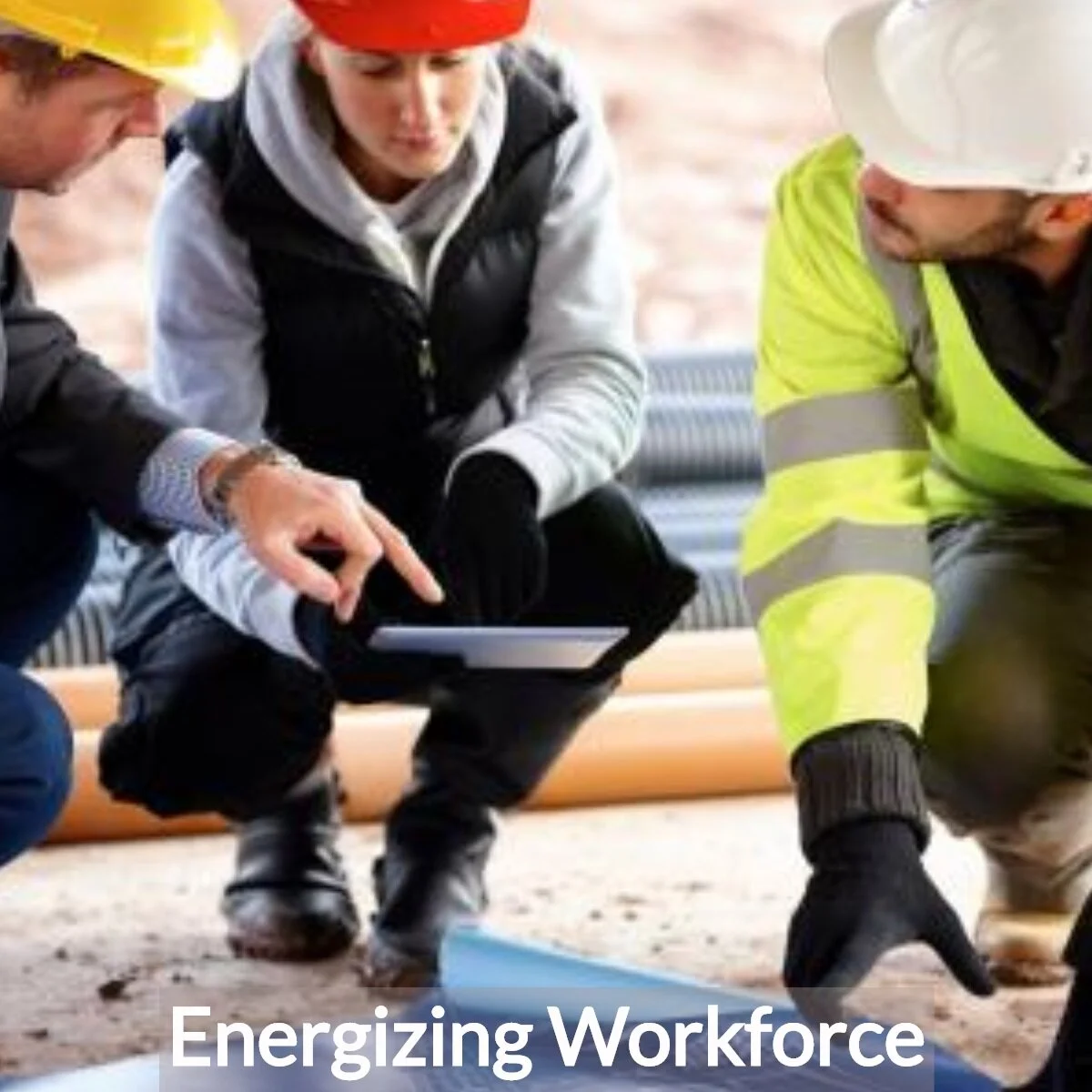To continue learning and expanding my knowledge on EE Workforce issues, I have had the amazing opportunity to be a member of the ACEEE Inclusive EE Workforce Development Learning Group that started in December of 2020. ACEEE is a pivotal voice when it comes to countless topics related to EE, but when it comes to the cross connection between equity in energy, their knowledge is unmatched. Within this working group I was referring to, you will find stakeholders stationed across the country all working to push equitable practices in the energy space. Representatives from utilities, program administrators, and community-based organizations all find themselves in an influential space to make a progressive difference in the world of EE- and I am honored to be a part of it.
Thus far, we have covered a variety of topics, but during our last conversation, there was something that sparked a spiral of thoughts in my own head that directly related to the content from past editions of “Energizing the Workforce.” When recruiting, training, or onboarding (any step within the hiring process) individuals, there needs to be a specific set of efforts that address certain circumstances of each prospective employee. Essentially, it must be conveyed to leadership or people of power in hiring practices, that you need to have multiple forms of training tactics to adhere to the needs of certain groups of people.
Now what does this even mean? Not every person you bring into a certain career, internship, or even apprenticeship program has the same background and being cognizant of this is imperative. For example, you could be working with an established white male who just completed his master’s degree at an accredited university OR you can be working with a woman of color who is also a single parent and is being introduced into a HVAC training program. In essence, those in leadership roles need to pay particular attention to the individuals they are working with because having a streamlined hiring process for every person does not support the differences that exist. Whether we understand this or not, your personal life experience contributes A LOT to how you function in your professional life, so having an employer understand the connection between your professional/personal spheres can be a valuable component to your success.
Recently, I was having a discussion with a colleague who primarily works in small, disadvantaged communities on climate related workforce programs. Many of the individuals they work with are returning citizens (also known as previously incarcerated) and are looking for career opportunities or apprenticeships to gain experience in the fields promoted by the associated workforce programs. The discussion took many turns but always came to the same result- and that is that there is a lack of understanding about the how your personal circumstances can influence your professional ones. For instance, a returning citizen who is seeking employment may experience additional struggles or barriers than the next person, and the lack of leadership understanding, deters these groups from even applying for these career opportunities completely.
Marginalized groups (low income, immigrants, people of color, and many others) in California are suffering at disproportionate rates compared to their counterparts when it comes to employment opportunities, especially today. It is our job to (as cliché as it sounds) be a voice to those who may not have one in Climate/Energy Related careers. The demographics of the Energy Industry are far from inclusive, equitable, and diverse so in order promote those three things, we need to embody them. Fostering efficient workforce opportunities for marginalized communities and not just acknowledging circumstances but understanding those experiences on a meaningful level is a key factor to progress. Now, the SJVCEO is NOT a workforce organization nor are we experiencing these directly BUT we do have the ability to impact a small piece of this problem. And that impact is facilitating and highlighting the issues we are hearing from those who DO have direct experience like the ones mentioned above.
There are programs across this country that are starting to adapt and engage in practices like the ones above in order drive an equitable workforce. Too many Americans are lacking opportunity because of factors that are often beyond their control, so it is up to current members of the industry to make the changes to build a successful clean energy future.

